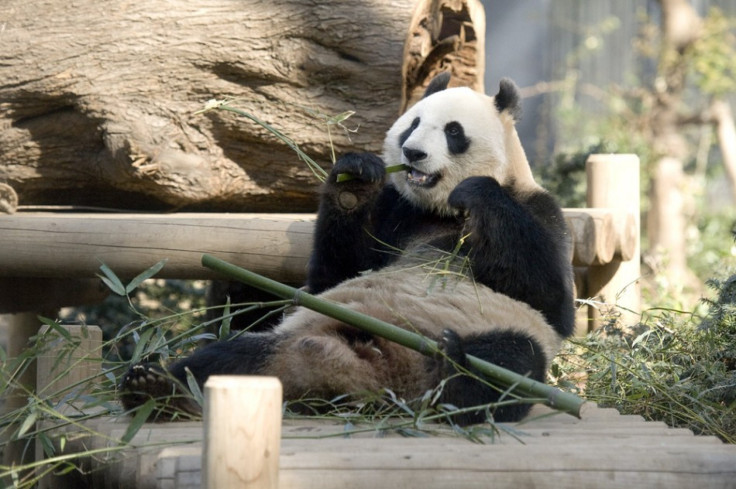Can Pandas Be Used As A Diplomatic Weapon?

Shintaro Ishihara just can't get enough attention from China. One could almost think the 80-year-old governor of Tokyo has an unhealthy attachment to riling up the Chinese government.
Of course, in the current atmosphere of bilateral relations, comments against the Chinese government are unlikely to draw much, if any, condemnation at home. But they still seem quite unnecessary, even provocative.
Upon hearing news that Shin Shin, a 6-year-old female panda in Tokyo's Ueno Zoo, was pregnant with the twin cubs of Ri Ri, a male panda, Ishihara offered a name for the expected newborns last Thursday.
Like an embarrassing grandfather, Ishihara suggested that the twins should be named Sen Sen and Kaku Kaku, after the Senkaku Islands -- the disputed maritime territory which China and Tokyo both claim as sovereign land. China calls the islets the Diaoyu Islands.
Newborn pandas must be returned to China, since the country only loans out the endangered animals, and does not give them permanently to other nations.
Ishihara remarked that the act of retuning the cubs would allow China to at least be able to exercise sovereignty over something with the name of the islands.
New births for pandas, notoriously difficult to breed, should be a happy prospect. Although Japan has long had a special exhibit for pandas in its Ueno Zoo in Tokyo, a cub hasn't been born there in 20 years.
The Chinese Foreign Ministry, responded on Friday by calling the comments cheap performance in Ishihara's schemes to damage Sino-Japanese relations (...) that would only hurt Japan and Tokyo's image.
No matter what names Ishihara gives to Chinese pandas, he cannot change the fact that the pandas belong to China, just as Japan cannot change the fact that the Diaoyu Islands belong to China no matter what names it gives to the islands and their adjacent islets, said the Ministry.
Ishihara raised the ire of the Chinese government in mid-April, when he proposed that the Tokyo municipal government would purchase privately held portions of the disputed islands, drawing a backlash from nationalists in China.
© Copyright IBTimes 2024. All rights reserved.











